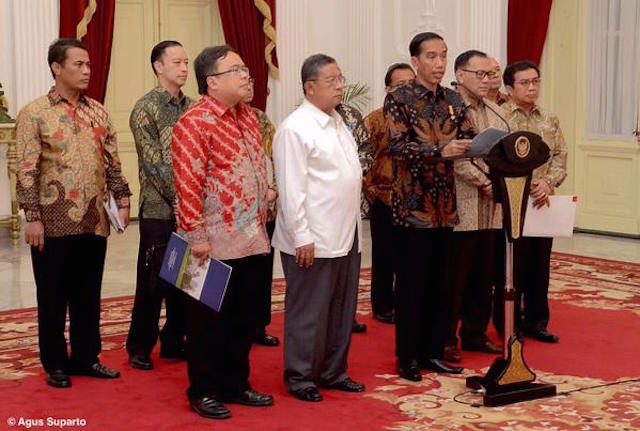SUMMARY
This is AI generated summarization, which may have errors. For context, always refer to the full article.

JAKARTA, Indonesia – Indonesia Wednesday, October 7, unveiled its third batch of stimulus measures in the space of a month, including a cut to energy prices, as Southeast Asia’s biggest economy battles a slowdown.
The economy is growing at its slowest pace for 6 years and the rupiah is at a 17-year low, as the country is hit hard along with other emerging markets by signs of strengthening in the US and turmoil in China.
In the 3rd installment of an economic policy package, the government announced a cut in a range of energy prices, including diesel, jet fuel, and liquefied petroleum gas, used by tens of millions across the country in cooking.
Other measures included the government offering to contribute towards insuring the country’s millions of farmers against losses, and making it easier for startups to get funding.
“The government is continuously improving the business climate,” Chief Economics Minister Darmin Nasution said, as he unveiled the steps in a televised address alongside other policymakers.
The decision to lower the price of diesel, from 6,900 rupiah (50 US cents) a liter to 6,700 a litre, came after President Joko Widodo last week requested a cut in fuel prices to help industry.
Fuel prices were heavily subsidized for decades in Indonesia until Widodo last year scrapped the payouts entirely for petrol and reduced them substantially for diesel to free up money for other government programs.
The two previous batches of stimulus measures announced in September included measures to cut red tape and attract foreign investment.
There has been some relief for policymakers this week as the rupiah, which has been falling steeply, rebounded strongly after disappointing US jobs data lowered expectations the Federal Reserve will cut interest rates soon.
The unit surged 3.4 percent against the dollar Wednesday. The stock market has also made gains. – Rappler.com
Add a comment
How does this make you feel?





There are no comments yet. Add your comment to start the conversation.